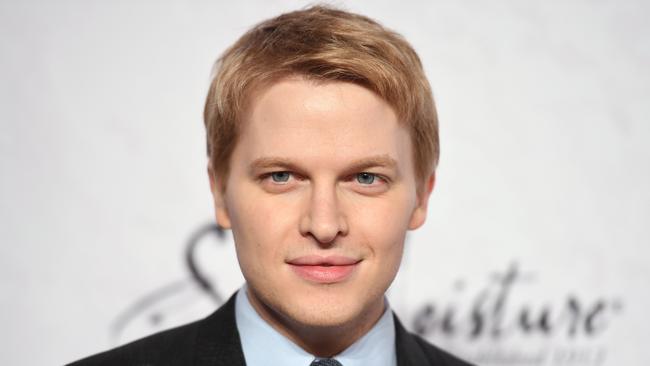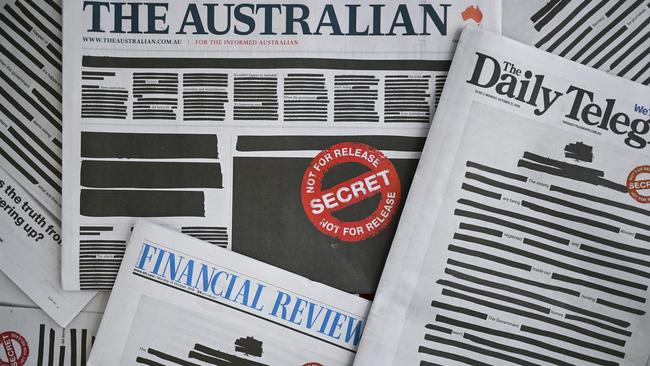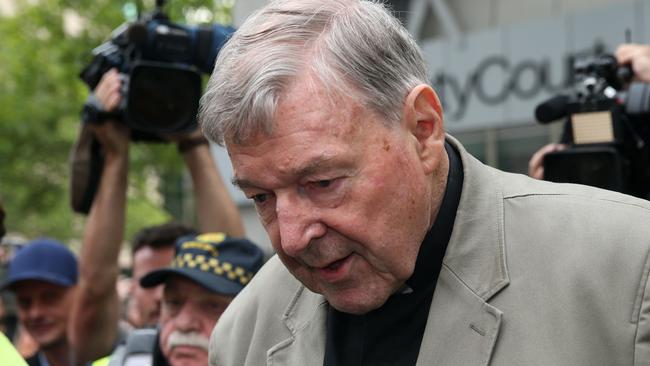Australia should look to the US on press and media freedom
Trump may lambast them brutally, but for as long as the media continues to report truthfully and freely, the US remains a shining example of what a healthy press looks like. If only Australia could say the same.
Rendezview
Don't miss out on the headlines from Rendezview. Followed categories will be added to My News.
Democracy is messy. That’s a truism both Americans and Australians can appreciate.
When public discourse devolves into childish insults, and political campaigns promote inaccurate exaggerations, our mass media ecosystems can become tiresome. And when crises erupt, and social tensions boil over, the same media freedom Australians and Americans rely upon to perform our civic duties can begin threatening social cohesion.
Political elites in both nations regularly call to clean up the mess. Yet democratic governance demands that we — as self-governing citizenry — learn to abide the tension and accept the conflict.
In the American context, the promotion of debate remains an ideal, enshrined in the nation’s Bill of Rights and protected in numerous subsequent court cases and laws. In Australia, however, such broad ideological accommodation for media freedom has never gained purchase.
RELATED: PM pushed on press freedom during Question Time
Australian liberty remains more closely aligned with the more restrictive British system than the open and chaotic American model. Though the British legacy might be effective for social unity, it can also be problematic for Australians in ways that they might not often consider.

For example: over the past week we’ve seen expansive defamation laws force many Australian book marketers to abandon sales of Ronan Farrow’s Catch and Kill. Why? Because Dylan Howard, an Australian serving as a top executive at American Media Inc., has retained attorneys to threaten defamation lawsuits should the book be distributed in Australia.
In the United States, such a lawsuit would be quickly dismissed because any assertion that’s provably true in the American system is not legally actionable. But under British and Australian law, verified truth is no defence. In fact, because a truthful defamatory accusation is more damaging than a false one, the penalty for publicising accurate information can actually be worse than for distributing lies.
MORE OPINION: The question all Australians should be asking
Defamation law isn’t the only place where media freedom differs significantly between the US and Australia.
In general, Australian strictures on publication are designed to be more deferential to authority and more protective of invasions of privacy and personal reputation. Such sensitivity to class hierarchy and a residue of social deference almost bordering on obsequiousness, remains a hallmark of British culture that many Australians still admire.
Compared to the British, though, Americans have literally no class.

The US’s official ideology of democratic equality — embedded in the Declaration of Independence and the constitution — has encouraged and sustained a fractious public sphere since the nation’s inception. In the election of 1800, President Adams’s campaign accused Thomas Jefferson of raping his slaves, while Jefferson’s supporters claimed Adams was a despotic tyrant of “hideous hermaphroditical character.” Whether in politics or journalism, cacophonous public debate — filled with invective and outrageous slurs — has been the historical American norm.
MORE OPINION: Right to know when our rulers get it wrong
To sustain that political system, and to protect American journalism and insure freedom of speech, the boundaries of media freedom have been significantly expanded over the centuries.
The limits have been so widened that just about anyone in the US, including paedophiles and Nazis, can legally publish advocacy newsletters without legal consequence.
If that sounds like a recipe for disaster, it often is; media freedom in the United States incites as many problems as it solves. Journalists have been murdered for advocating equality and justice under the law, the abolition of slavery, and the protection of journalistic freedom. And this promotion of media freedom has resulted in other unforeseen outcomes like televised trials live from the courtroom, which has transformed American jurisprudence into media spectacle.

Yet censoring vital legal cases can be equally damaging. Despite the fact that it involved Australian victims, Australian jurisprudence, an Australian perpetrator, and Australian society and culture, Americans obtained far more access to the unfolding trial of Archbishop George Pell than Australians did.
Ultimately, there exists no normative model of media freedom and every nation needs to calibrate the cost-benefit ratio of protecting free speech. Under the Chinese system, there exists almost no benefits to offset the risk of social disunity and political disharmony, so censorship is strictly observed. Under the American system, the benefit of promoting an informed citizenry outweighs the costs of protecting kooky and dangerous ideas. Australia exists somewhere in between, though it seems citizens prefer to believe they operate a more libertarian media system than, in fact, exists.
MORE OPINION: The slide into secrecy must stop
One of the odd discoveries for me during my time in Australia was that the mass media broadcast more video, published more images, and reported more details about the flood of migrants and refugees at the U. S-Mexico border than it did about the migrants and refugees being held on Manus Island. I describe this as “odd” because in a democracy, the citizenry should have access to information and images revealing governmental actions, including — and perhaps especially — the ones that are embarrassing.

When government agents raided the national news broadcaster as what appeared to be a retaliation to outstanding investigative journalism, such authoritarian overreach should embarrass any population that expects open and candid reporting.
MORE OPINION: Trump’s popularity continues to rise despite the negative media
President Trump calls the American media, “the enemy of the people.” Every day the it returns the antipathy by publishing scandalous and embarrassing information about his administration. Superficially, such conflict might appear dysfunctional and shameful. But the open vitriol demonstrates and validates the vitality of American democracy. To appreciate this, just consider its opposite: a world where any government, claiming to act in the people’s interest, can jail and censor journalists for the crime of informing the populace with truthful and verified information.
When it comes to media freedom, I’ll take the messy over the efficient, the chaotic over the despotic, any day. And I suspect most Australians would likely agree.
Michael J. Socolow is an Associate Professor of Communication and Journalism at the University of Maine, and was a 2019 Fulbright Research Scholar at the University of Canberra’s News and Media Research Centre.
